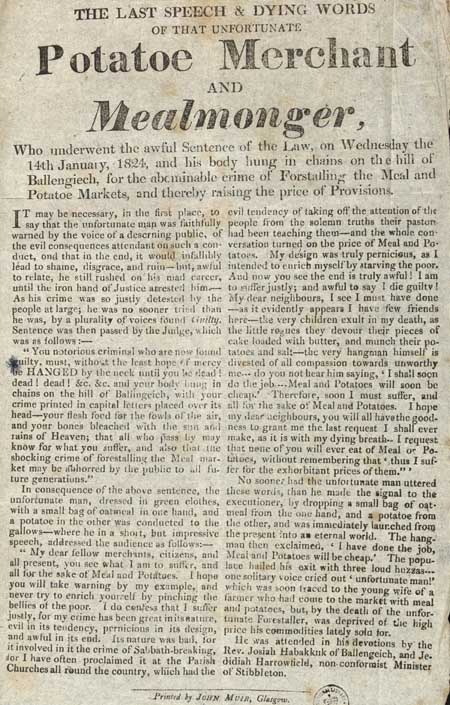Commentary
This report begins: 'THE LAST SPEECH AND DYING WORDS OF THAT UNFORTUNATE Potatoe Merchant and Mealmonger, Who underwent the awful Sentence of the Law, on Wednesday the 14th January, 1824, and his body hung in chains on the hill of Ballengiech, for the abominable crime of Forstalling the Meal and Potatoe Markets, and thereby raising the price of Provisions.' It was printed by John Muir of Glasgow, in 1824. Broadsides could vary in tone, and here the reporting is heavy in biblical imagery such as: 'your flesh food for the fowls of the air, and your bones bleached with the sun and rains of Heaven'. The portentous words are ascribed to the speeches of the judge and the convicted man, but it is likely that there was a certain amount of artistic licence on the part of the author. Broadside authors often assumed the role of moral guardians to their readers and it is even possible that the case described here is a fiction produced for moral instruction: the convict's name is not mentioned, which suggests he could be an invention. Broadsides are single sheets of paper, printed on one side, to be read unfolded. They carried public information such as proclamations as well as ballads and news of the day. Cheaply available, they were sold on the streets by pedlars and chapmen. Broadsides offer a valuable insight into many aspects of the society they were published in, and the National Library of Scotland holds over 250,000 of them.
View Transcription | Download PDF Facsimile
|
 |
Date of publication:
1824 shelfmark: F.3.a.13(103)
 View larger image
View larger image
|


